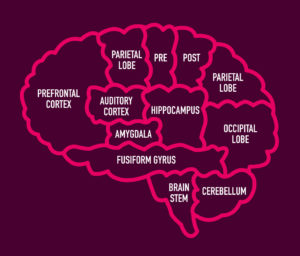
Contributing authors include Cathy Quon and Mary Stewart
Have you found yourself hoarding toilet paper and Clorox wipes in the last few weeks? Feeling edgy and out of sorts? Wake up feeling like you’re in an episode of the Twilight Zone? Obviously, you’re not alone. The rest of the human race in living through this pandemic too.
Layoffs! Bear market! Closures! Hospitals are overwhelmed! Deaths! COVID, COVID, COVID—24/7. It’s no wonder we’re overwhelmed—we’re hardwired to categorize everything we see and hear as either safe or a threat.
Two regions of our brain are in constant competition. If we decide something in our environment is a threat, we go to our “lizard brain,” the amygdala—the primal seat of our brain. That’s the “fight or flight” center. If we consider something safe, we can effectively use our pre-frontal cortex—the place for rational thought and informed decisions.

The human brain.
The amygdala and pre-frontal cortex cannot operate simultaneously. It’s binary – one or the other is in charge. So, if you’re fearful, you might jump to “I might run out of toilet paper!” Your deductive reasoning is switched off. You won’t be able to convince yourself that the toilet paper supply chain is strong and that grocery shelves will be restocked soon.
So, what is the right way to approach work? During this stressful time and beyond, how can you better modulate the amygdala and prefrontal cortex of your own brain, and help your fellow employees do the same?
You can use your knowledge of the brain to trigger both brain centers in a positive way, during this crisis or for any challenge.
Tap the amygdala. The amygdala is sensitive to messages of loss, reward, and fairness.
Fear of Loss
Current Crisis: Manipulate that fear for the greater good. “If we don’t shelter in place, there will be more illness and death.” Anytime: Highlight what they lose by staying in the status quo, whatever that is. Example: “If we don’t change our intake systems today, we will continue to lose patient records and that will result in more lawsuits like the one we had in 2019.”
Sensitivity to Fairness
Current Crisis: “We’re all doing our part in social distancing and working from home.” Anytime: Snap people of out an emotional reaction. Focus on how standard criteria or rules have been used, as opposed to capriciousness. Example: “We looked at tenure and the past five years of performance data.” Or “This is applied uniformly; no one has been singled out.” Emphasize why the change makes sense, factually. Use data. Example: “Nine out of ten hospitals now are offering virtual appointments.”
Seeking Reward
Current Crisis: “The more we follow CDC and state guidelines, the sooner we can knock down this virus and resume normal life.” Anytime: Offer interventions of praise, feedback, peer recognition, and team celebrations.
Enable the pre-frontal cortex. The pre-frontal cortex responds to the promise of altruism, connection, and delight.
Appeal to Altruism
Current Crisis: Share what the company is doing to help (e.g., donating masks/gloves or making hand sanitizer). Tell personal stories of altruism—maybe your teenage son is making weekly grocery runs for senior neighbors. Post a quick story and photos, and invite other employees to do the same. Anytime: Appeal to the greater good. Example: “This will make people’s finances more secure.” Make it as personal as possible. The personal and emotional override the intellectual. We can use that to motivate, by showing the people we will help through the change.
Desire for Connection
Current Crisis: Start all virtual meetings by checking in with everyone. Ask people how they are doing and take time to share stories. Organize optional virtual lunch hours or breaks with an emphasis on non-work conversation. Set up channels to support each other with advice and information. And take care of yourself—talk to more friends and family on a video call or take a group workout class via Zoom. Anytime: Focus on the sense of community and team—not letting others down. Talk about those who will take a fall if the organization does not succeed. Focus attention on shared success. “Look how far we’ve come!”
Seeking Delight
Current Crisis: Publicize “feel-good” stories. Talk about the heroic efforts of teams during this challenging time. Tell stories of individuals finding humor or success despite the crisis. Include facts, testimonials, and quotes to capture their attention. Anytime: Focus on the personal, symbolic and thoughtful. For example, plan a surprise—something that is meaningful—to mark the end of a project. What can leaders do that is personal and individualized? Hand-written thank you notes? Also, think about delights along the way, not just at the end of the project. What do we have to celebrate right now? What do we know about the team? What do they love? Delight them in ways that make them feel seen and understood.
Yes, these are tough times but we can use our knowledge of brain science to muster the resilience we need to get through it and come out stronger.




